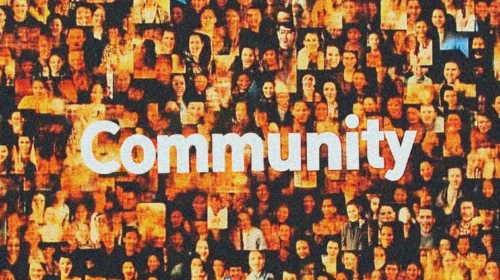Around ten percent of all men experience depression and anxiety throughout their lifetime, and for as long as I can remember, I’ve always been one of them.
Whether it’s the sleepless nights worrying about objectively trivial things, hours-long bouts of melancholy that, if left unchecked, can easily realign your entire perception of reality, or the persistent fear that you’re not doing (or being) “enough” in life, or anything else, I’ve never been a stranger to the impact of mental health challenges.
One thing I’ve definitely learned along the way is that factors related to gender had a profound influence on how I navigated these struggles, and I’m not alone. Although society may have, to some degree, evolved in the way it perceives, contextualizes, and validates male mental health struggles, stigma, expectations of masculinity, and other challenges continue to keep men from acknowledging and admitting they need help.
I’m sharing a bit of my journey for context but also as part cautionary tale and part permission to prioritize your mental health, no matter how you think it makes you look.
How It Started…and Continued for a Long Time
If you’re like me, I’m sorry. I’m kidding, but in all seriousness, if you’re like me, you may have always felt something was off with your mental health, but you never really gave yourself the space to explore it or even realized something was amiss. Whenever I was upset, I would just hear comments like “It’s not that bad’ or “You’re such a serious kid.”
The older I got; however, I noticed that nobody seemed to worry or brood as much as me—not even adults with actual responsibilities. I was always convinced that the other shoe was going to drop or that the world was somehow against me and would take every adverse event in my life as some kind of personal slight from the universe.
I got better at contextualizing these reactions, but I continued to let depression and anxiety affect every major life event or milestone. In college, I felt like I was going to fail even though my grades were fine; at work, I suffered from crippling imposter syndrome and felt like I wasn’t good enough; in relationships, I felt like everything could come crashing down at any second because I wasn’t good enough.
A Self-Fulfilling Prophecy
Whether or not these fears and negative emotions are founded, they start to become reality if they’re given enough room in your head to fester, and that’s precisely what happened to me. I lost jobs, walked away from many meaningful relationships, became estranged from some of my best friends, and avoided pursuing passions and moments because I was afraid of a negative outcome. Despite all evidence to the contrary, I still believed I was living a balanced and fulfilling life. I certainly never considered that my gender was playing a role in these behavioral cycles…until I started to dig a little bit deeper.
Missed Opportunities
I’m not going to sit here and indict every one of the men in my life who were supposed to be role models, but I will say that I can distinctly remember how some of them disdained the concept of therapy or even the admission that someone might need it. I remember hearing things like “That guy needs to suck it up,” or “What does he have to be depressed about?” or the classic “Be a man” when a boy in my family would start crying or even hint at a tear.
Like other men of my age, these comments and perceptions imprinted on my conscience and profoundly influenced how I thought I should (and shouldn’t) react to adversity. Awareness could be seen as weakness; asking for help could be seen as telling someone your private business; admitting something was overwhelming could be seen as giving up. While my need to express negative emotions wasn’t stifled, it was more acceptable to be angry than sad.
These perceptions carried over into pretty much every area of adulthood. I didn’t want to admit I needed help at work because I equated manhood to earning power; I didn’t want to let a partner get too close because I didn’t want to be vulnerable; I didn’t want to acknowledge physical or emotional pain because I thought it was my burden and nobody else’s.
At several points in my life, I dismissed the idea of therapy outright because of what it meant to be a man…until the patterns became impossible to ignore.
Breaking the Glass and Getting Help
You can only cling to a life that’s not working for so long before something needs to change. I came to therapy later in life than most but dove in headfirst and thoroughly embraced the process. It taught me how to healthily manage my past issues, how to contextualize those experiences when entering new situations, and, most importantly, that they didn’t have to define me as a person, male or otherwise. I’m not going to sit here and say that I’m all fixed and better, but the awareness of how gender-related expectations and generational perceptions of manhood have been instrumental in my continued growth.
Why Am I Telling You This?
We’ve come a long way in recognizing the unique struggles in male mental health, but there continue to be men who are transported right back to their childhood homes when things get tough in their lives—you don’t have to stay there. I’m here to tell you that it’s OK to reach out for help and recognize you have some things to work on. I’m also letting you know that you’re no good to your spouse, children, employees, friends, family, or anyone else who may depend on you if you don’t prioritize your own mental health. Life gets complicated and overwhelming, and it’s perfectly natural to get help for the pressure, confusion, and trauma it throws your way. In other words, be a man and get help when you need it.

























